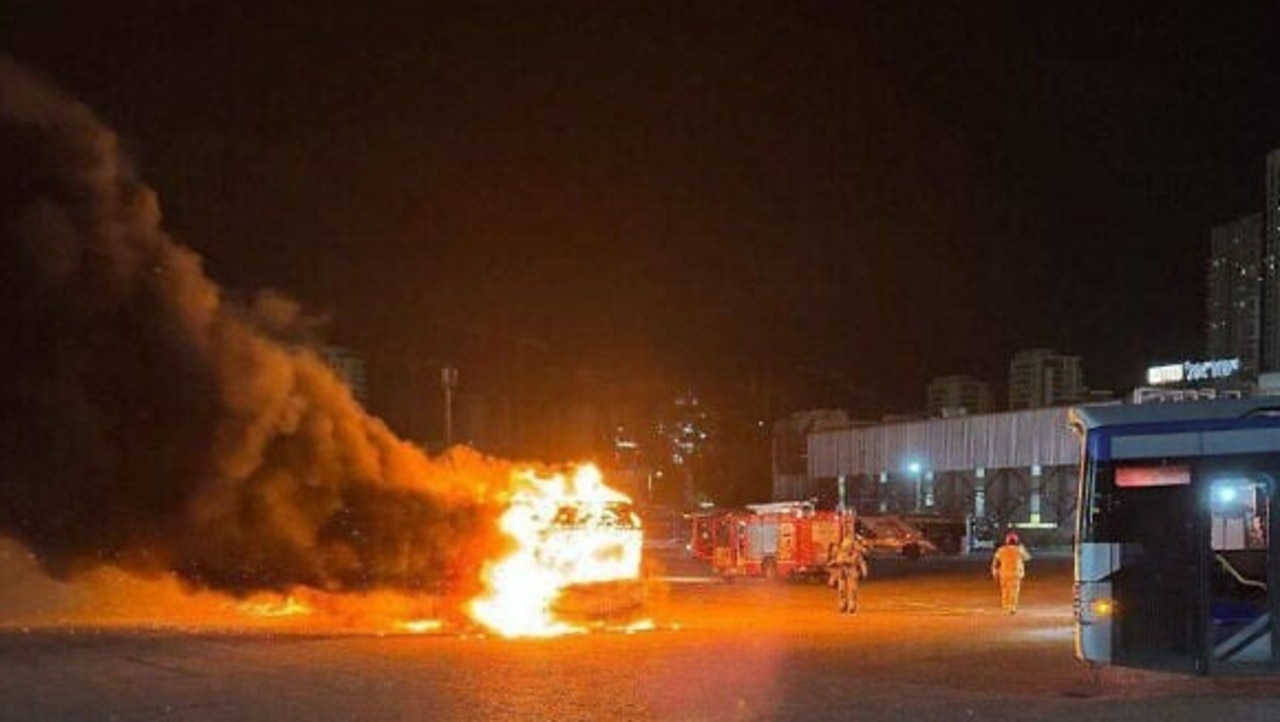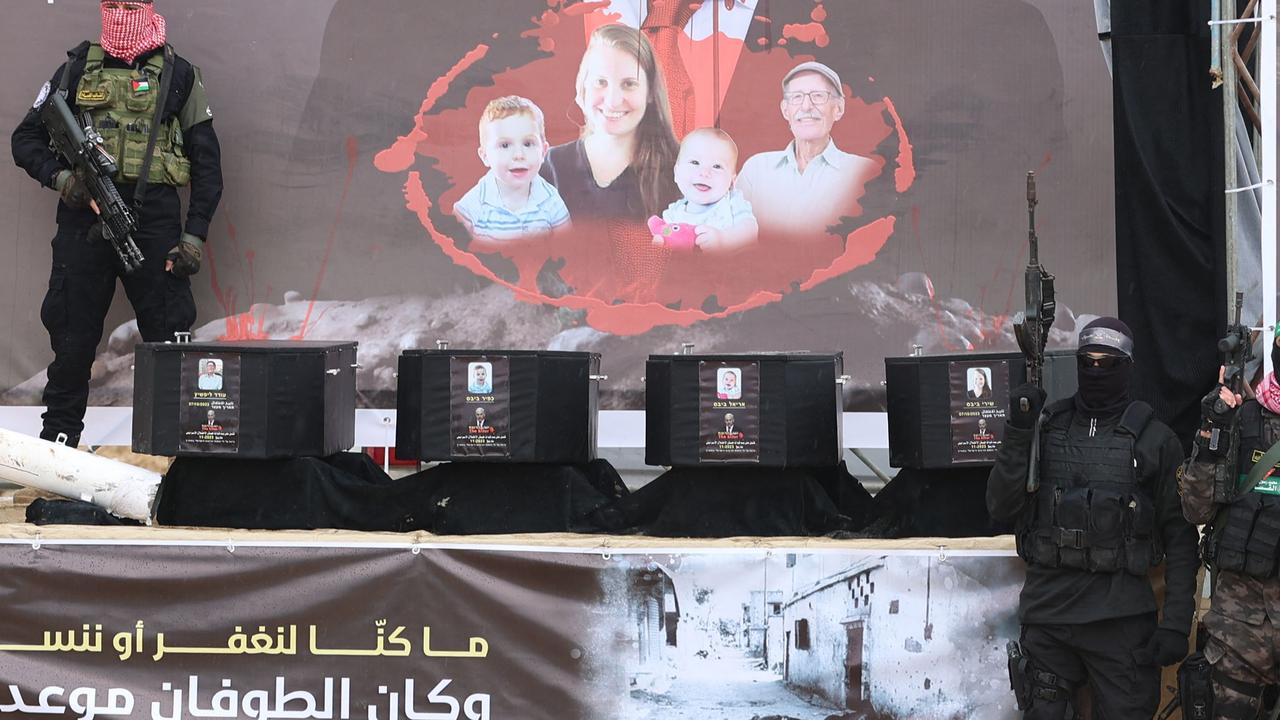Islamic State terror hits New Zealand in Auckland stabbing attack
The ISIS-inspired terrorist who stabbed six people in a frenzied supermarket attack in Auckland was under around-the-clock surveillance by New Zealand agencies.
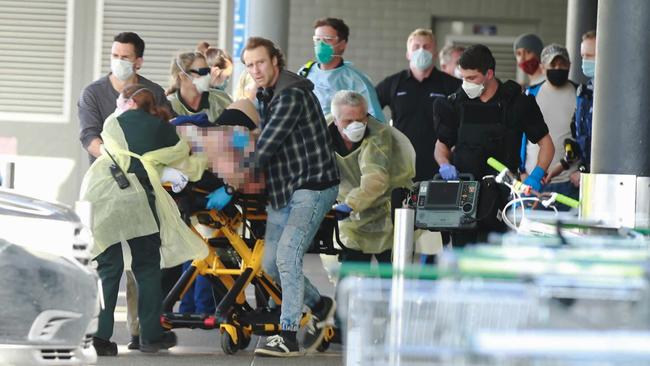
The ISIS-inspired terrorist who stabbed six people in a frenzied supermarket attack in Auckland was under around-the-clock surveillance by New Zealand security agencies and tailed by armed police to the scene of the carnage.
The Sri Lankan man was shot dead within 60 seconds of grabbing a knife off the shop shelf and striking, but not before he inflicted horrific wounds on his unsuspecting victims.
New Zealand police confirmed the 32-year-old man had been previously charged with planning a “lone wolf” terrorist attack after being caught with vicious hunting knives and Islamic State propaganda videos. He had been a person of “national security interest” since 2016.
Recently released from prison, he was followed to the New Lynn Countdown supermarket in west Auckland by special tactical group police who gunned him down after he embarked on the bloody spree about 2.40pm local time.
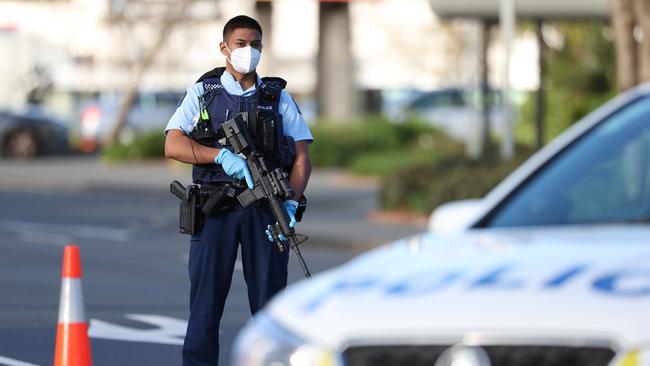
Three of the injured shoppers were critically injured, fighting for life in hospital on Friday night.
Prime Minister Jacinda Ardern said she was “gutted” the man had been at large despite his known extremism. “What happened today was despicable. It was hateful, it was wrong,” she said.
“It was carried out by an individual, not a faith, not a culture, not an ethnicity but an individual person who is gripped by an ideology that is not supported here by anyone in the community.”
The attack came only days after New Zealand military aircraft participated in the evacuation of Westerners and at-risk locals from Kabul airport after the Taliban’s takeover of Afghanistan.
It also evoked raw memories of the 2019 mosques massacre in Christchurch in which 51 people were shot to death and 40 wounded by Australian white supremacist Brenton Harrison Tarrant, an act of violence also decried by Ms Ardern as terrorism.
Grim-faced, she said the attacker was an “ISIS-inspired known threat” who had arrived in New Zealand in October 2011. She said court suppression orders prevented her from going into his immigration status or case details, but he had been under constant watch by the security services and police.
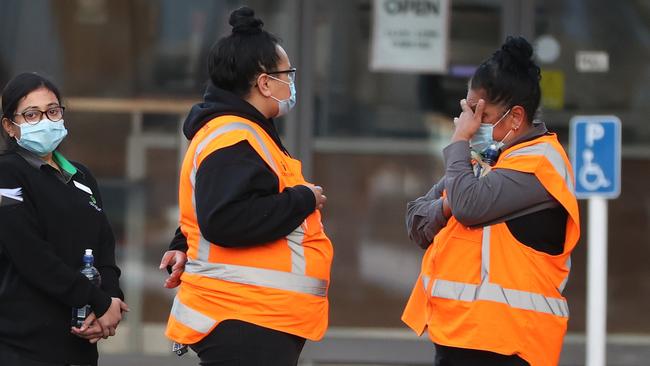
“We have utilised every legal and surveillance power available to us to keep people safe from this individual,” Ms Ardern insisted.
Witnesses described horrific scenes as the bloody rampage unfolded. In a video posted to social media, shoppers could be heard warning each other about “someone with a knife” before a fusillade of gunshots rang out, killing the assailant.
One witness told The New Zealand Herald that the man, wearing a khaki jacket and wielding a knife “the size of his arm”, had bellowed “Allahu Akbar” while stabbing people.
“It literally happened in front of me,” the woman, 34, said. “I was just … walking toward the milk aisle and then suddenly I heard a person shouting loudly “Allahu Akbar” and just running.
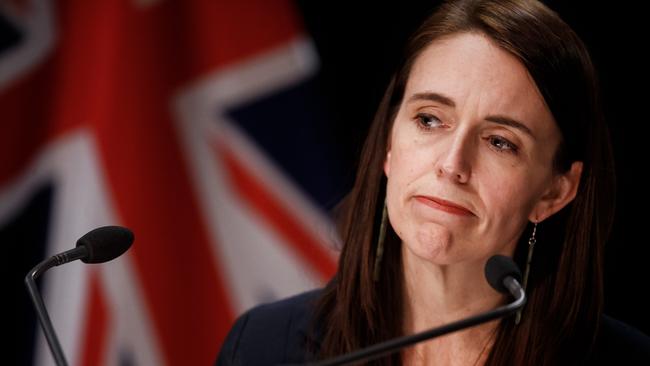
“So there was this lady in front of me and he jumped on her so she fell … he also fell. Then he got up. She was lying on the floor. I have a feeling she may have got stabbed.”
Police commissioner Andrew Coster said the attacker was a regular at the supermarket and had been followed there by surveillance and special tactical police. He had pulled the knife without warning.
Two armed tactical officers confronted and shot him within a minute of the attack being launched. “I acknowledge this situation raises questions about whether police could have done more, whether police could have intervened more quickly,” Mr Coster said.
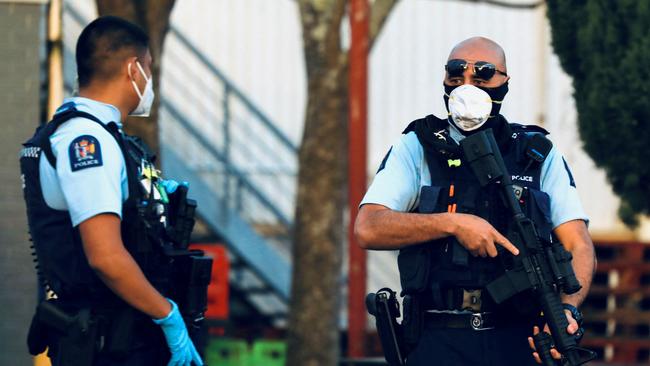
“I am satisfied … that the staff involved did not only what we expect they would do in the situation, but did it with great courage. The reality is when you are surveilling someone on a 24/7 basis it is not possible to be immediately next to them at all times.”
Defending the man being free despite the threat he posed to public safety, Ms Ardern said: “The reason he was in the community was because of the inability through the law to have him anywhere else.”


